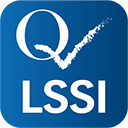The civil public square: inspiration from Albania
The evangelical Ylli Doci is the chairman of the Interreligious Council of Albania. But why does the Albanian Evangelical Alliance commit time to this interreligious work?
17 AUGUST 2022 · 16:03 CET
Cropped.jpg)
Many people know of Albania’s extreme communism and strict atheism from the end of World War II until the early 1990s. But what is less widely known is the country’s history of peaceful interreligious co-existence both before and after this period of dictatorship.
Albania’s Evangelical Alliance (the Evangelical Brotherhood of Albania VUSH) is proud to play its part in fostering the harmony between faith communities so that the common good is strengthened.
Pastor, Dr. Ylli Doçi, President of the Evangelical Alliance is Chairperson of Albania’s Interreligious Council which brings together all the recognised faith communities of the nation and involves the top representatives of all the country’s religions. Other VUSH leaders are in the Council’s Executive Board.
Why? Why does VUSH commit time to this interreligious work?
“It’s my job!”, Ylli says. “Evangelicals need to work together with other faith communities for freedom of religion or belief for all. Our voice needs to be heard. The Interreligious Council helps to build a civil public square where every community is respected.”
The Council is built on relationships between faith community leaders. This enables rapport to be built and misunderstandings to be removed.
Ylli explains: “We can be open with each other, we can be friends. All of this is without compromising our religious distinctives. We know our beliefs contradict each other but we all support the principle that people must be free to convert from one faith to another.”
The Council goes way beyond friendship, speaking regularly into the needs of the moment.
When Muslims were attacked in New Zealand or Christians attacked in Sri Lanka, the faith communities spoke up together in solidarity. When freedom of expression has been threatened in Albania, again the Council has spoken up.
It also produces resources on domestic policy debates and contacts government ministers and Members of Parliament in joint advocacy. The Council is committed to promoting the moral values that all the faith communities espouse and which they hope will be a compass to guide Albania as it aims to join the European Union.
Interreligious tension does sometimes bubble up at grassroots level in Albania. And younger generations are less used to relating across faith boundaries. Council members are not naïve about the challenges. But they are determined to give a good example and to inspire all faith and worldview communities to live in peace and with full freedom of religion or belief.
Ylli Doçi is understandably proud of the Council and appreciates the other faith leaders.
“I have thanked them. I have mentioned the fact (that they are well aware of), that 99% of Albanian Evangelicals have converted from one of their faith communities. But the fact that they treat me as an equal speaks loudly of true tolerance and harmony.”
“Oh, and of course, I regularly share the Good News of Jesus with them,” Ylli adds. “He is my beloved Saviour and they are my friends.”
Julia Doxat-Purser, socio-political representative of the European Evangelical Alliance (EEA). This article was firs published on the EEA's website and re-published with permission.
Published in: Evangelical Focus - European Evangelical Alliance - The civil public square: inspiration from Albania










